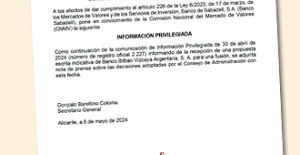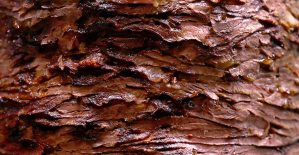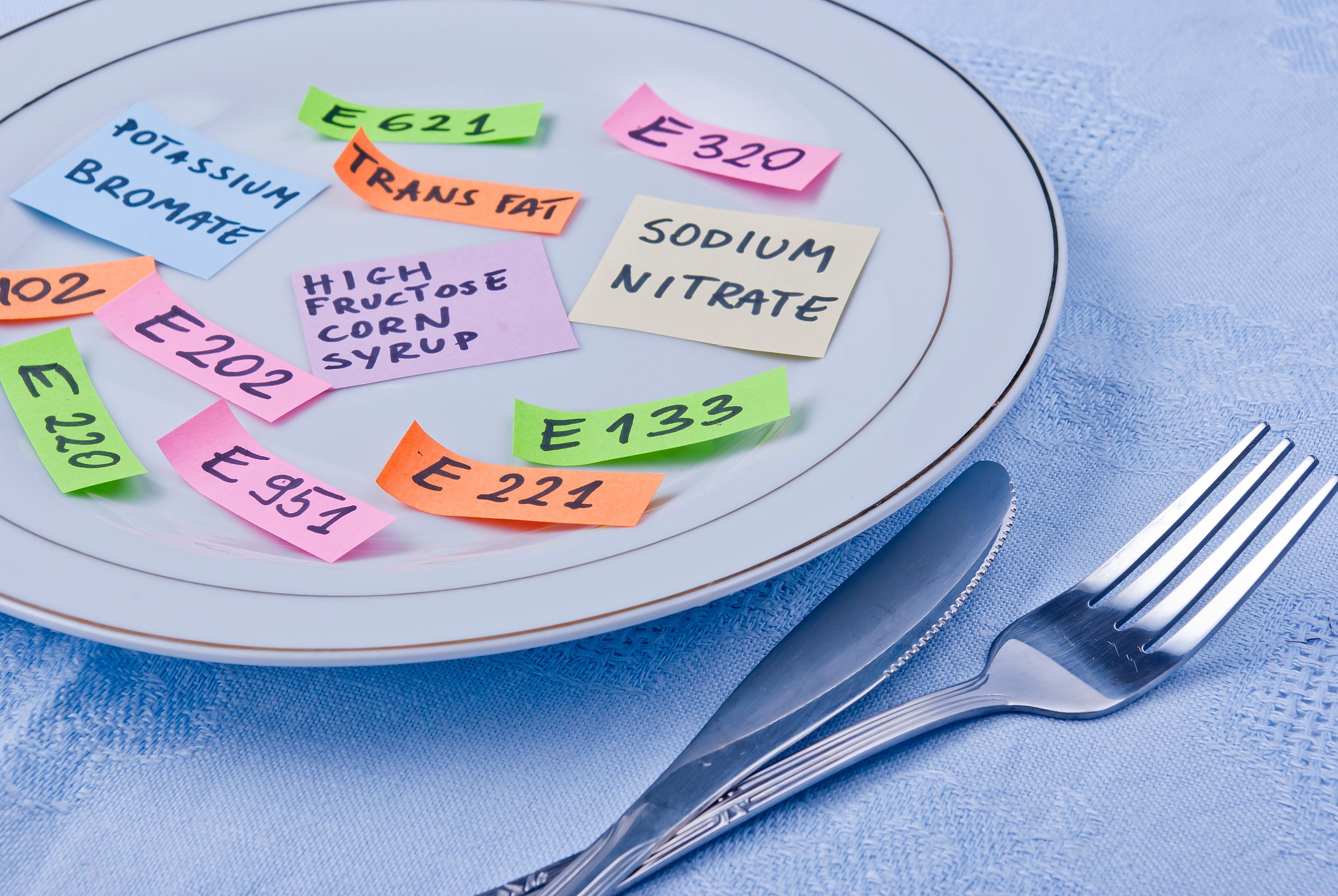Since ultra-processed foods have flooded supermarket shelves, the quantities of additives have gradually exploded on our plates. Among them, emulsifiers which improve the texture and flavor of food products while extending their shelf life. They are found in biscuits, industrial desserts, fats (crème fraîche, margarine, etc.) and even prepared meals. They even hide in some seemingly “healthy” products such as yogurt and some breads. Since they are approved for food use, these emulsifiers have permeated our food for a long time without anyone suspecting their possible harm to health.
However, in recent years, several suspicions have begun to emerge in studies. Certain emulsifiers are particularly involved in chronic inflammation of the intestine in animals. In humans, they are suspected of promoting cardiovascular diseases. While the evidence of their harmfulness is increasing, French researchers grouped within the nutritional epidemiology research team (Cress-Eren), suggest that their chronic consumption could promote the development of cancers.
The results published in PLOS Medicine are based on the analysis of health data from 92,000 adults who were part of the NutriNet-santé cohort. Between 2009 and 2021, participants regularly reported the food products and drinks they consumed using questionnaires. Based on laboratory dosages of these products, the team estimated the average quantity of emulsifiers ingested daily by each participant. Using statistical approaches, the researchers then evaluated the link between these intakes (high, intermediate or low) and the occurrence of cancers.
A total of 2,604 people were diagnosed with cancer during follow-up. Out of around thirty additives tested, three emerged as potential contributing factors: monoglycerides and diglycerides of fatty acids, called E471, and carrageenans (E407 and E407a). “These additives are very common in sauces, cream desserts, flavored yogurts, industrial biscuits and cakes and even certain soups. They serve as texturing agents to give a homogeneous appearance to the products,” explains Mathilde Touvier, research director at Inserm in nutritional epidemiology who led this study.
Generally speaking, participants who consumed the greatest quantity of the E471 additive had a 15% higher risk of cancer compared to the lowest consumers. This risk was increased by 24% for breast cancer and 46% for prostate cancer. The other two additives (E407 and E407a) were associated with a 32% higher risk of breast cancer. “A strong point is that they took into account most of the “classic” risk factors that could have interfered with the results such as age, sex, smoking, physical activity or even family history,” underlines Mathilde His, researcher in the Environmental Cancer Prevention department at the Léon Bérard Center in Lyon. This raises concerns because the incidence of breast and prostate cancers, the most common in the general population, has continued to increase since the mid-20th century. And this concomitantly with the advent of processed foods.
Also read: What should we remember about the links between nutrition and cancer?
For the moment, scientists do not know how these additives could act, nor why they are more associated with certain cancers. “They could present different modes of action depending on their properties but also the type of cancer,” suggests Benoît Chassaing, specialist in chronic inflammatory diseases and co-author of the study. “We also do not know whether the additives act alone or in combination through a cocktail effect that is more complex to study,” he adds.
In animals, a study had already pointed to an increased risk of colorectal cancer linked to the consumption of polysorbate 80 (E433) and carboxymethylcellulose (E466). The authors then suggested that these emulsifiers could alter the composition of bacteria in the digestive system, which would promote chronic tissue inflammation. According to the work carried out by Dr Chassaing's team, this lead in favor of an imbalance in the "intestinal microbiota" could also apply to humans. “In a human trial, we showed that doses much higher than average of the additive E466 modify the composition of the microbiota linked to an increased capacity to induce inflammation of the intestine,” explains the Professor Chassaing. “However, this inflammatory terrain is conducive to the establishment of cancers. » For scientists, it is therefore likely that this local mechanism observed in the intestine extends more generally to other organs.
So should we eliminate emulsifiers altogether? The authors remain cautious because this work reflects at best an association between the development of cancer and the consumption of additives, without demonstrating a clear cause and effect link. “This is the first study to quantify exposure to additives and its association with cancer. We are therefore at an early stage of research and further work is necessary,” insists Mathilde Touvier.
This nevertheless gives food for thought, especially since the same authors had already established a link between the consumption of these additives and an increased cardiovascular risk. Since 2019, the national Health Nutrition program has also recommended favoring the use of “raw products, not or minimally processed”, limiting the consumption of non-essential additives. “This is an important aspect of prevention because we know that ultra-processed foods rich in fats or sugars promote obesity, itself associated with an increase in the risk of numerous cancers through various known or suspected mechanisms, such as “chronic inflammation,” adds Mathilde His. An update of the safety assessment of certain additives could therefore be initiated in the coming years.

 Sabadell rejects the merger with BBVA and will fight to remain alone
Sabadell rejects the merger with BBVA and will fight to remain alone In Germany, the far left wants to cap the price of “doner kebabs”
In Germany, the far left wants to cap the price of “doner kebabs” Israel-Hamas war: Gaza between hope of truce and fear of Israeli offensive in the South
Israel-Hamas war: Gaza between hope of truce and fear of Israeli offensive in the South “Mom, Dad, please don’t die”: in the United States, a nine-year-old child saves the lives of his parents injured in a tornado
“Mom, Dad, please don’t die”: in the United States, a nine-year-old child saves the lives of his parents injured in a tornado The presence of blood in the urine, a warning sign of bladder cancer
The presence of blood in the urine, a warning sign of bladder cancer A baby whose mother smoked during pregnancy will age more quickly
A baby whose mother smoked during pregnancy will age more quickly The euro zone economy grows in April at its best pace in almost a year but inflationary pressure increases
The euro zone economy grows in April at its best pace in almost a year but inflationary pressure increases Children born thanks to PMA do not have more cancers than others
Children born thanks to PMA do not have more cancers than others “House of the Dragon”, “Succession”… Max, the new streaming platform from HBO and Discovery, launched in France on June 11
“House of the Dragon”, “Succession”… Max, the new streaming platform from HBO and Discovery, launched in France on June 11 The A13 motorway will finally reopen this Friday, in one direction only
The A13 motorway will finally reopen this Friday, in one direction only TNT commission of inquiry: tensions between LFI deputies and Macronists before the vote on the report
TNT commission of inquiry: tensions between LFI deputies and Macronists before the vote on the report Apple unveils a new, more efficient iPad range
Apple unveils a new, more efficient iPad range The Gaza War invites itself to the 2024 Pulitzer Prizes
The Gaza War invites itself to the 2024 Pulitzer Prizes Judith Godrèche presents a short film on sexual violence in Cannes
Judith Godrèche presents a short film on sexual violence in Cannes Kevin Spacey: new trial in sight in London for the American actor, for sexual assault
Kevin Spacey: new trial in sight in London for the American actor, for sexual assault Taylor Swift fans make London pub Black Dog their new place of pilgrimage
Taylor Swift fans make London pub Black Dog their new place of pilgrimage Omoda 7, another Chinese car that could be manufactured in Spain
Omoda 7, another Chinese car that could be manufactured in Spain BYD chooses CA Auto Bank as financial partner in Spain
BYD chooses CA Auto Bank as financial partner in Spain Tesla and Baidu sign key agreement to boost development of autonomous driving
Tesla and Baidu sign key agreement to boost development of autonomous driving Skoda Kodiaq 2024: a 'beast' plug-in hybrid SUV
Skoda Kodiaq 2024: a 'beast' plug-in hybrid SUV The home mortgage firm rises 3.8% in February and the average interest moderates to 3.33%
The home mortgage firm rises 3.8% in February and the average interest moderates to 3.33% This is how housing prices have changed in Spain in the last decade
This is how housing prices have changed in Spain in the last decade The home mortgage firm drops 10% in January and interest soars to 3.46%
The home mortgage firm drops 10% in January and interest soars to 3.46% The jewel of the Rocío de Nagüeles urbanization: a dream villa in Marbella
The jewel of the Rocío de Nagüeles urbanization: a dream villa in Marbella Institutions: senators want to restore the accumulation of mandates and put an end to the automatic presence of ex-presidents on the Constitutional Council
Institutions: senators want to restore the accumulation of mandates and put an end to the automatic presence of ex-presidents on the Constitutional Council Europeans: David Lisnard expresses his “essential and vital” support for François-Xavier Bellamy
Europeans: David Lisnard expresses his “essential and vital” support for François-Xavier Bellamy Facing Jordan Bardella, the popularity match turns to Gabriel Attal’s advantage
Facing Jordan Bardella, the popularity match turns to Gabriel Attal’s advantage Europeans: a senior official on the National Rally list
Europeans: a senior official on the National Rally list These French cities that will boycott the World Cup in Qatar
These French cities that will boycott the World Cup in Qatar “The future is for us”: “disappointed” and “proud” at the same time, Al-Khelaïfi sees the glass half full after the elimination of PSG
“The future is for us”: “disappointed” and “proud” at the same time, Al-Khelaïfi sees the glass half full after the elimination of PSG PSG: “Since January, these have not been my best matches,” agrees Zaire-Emery, who promises to “come back stronger”
PSG: “Since January, these have not been my best matches,” agrees Zaire-Emery, who promises to “come back stronger” “What is this question, honestly?” : Nasser Al-Khelaïfi (very) annoyed after PSG-Dortmund
“What is this question, honestly?” : Nasser Al-Khelaïfi (very) annoyed after PSG-Dortmund “I am the guy who has to score the goals”: Mbappé does not hide and assumes responsibility after PSG’s exit
“I am the guy who has to score the goals”: Mbappé does not hide and assumes responsibility after PSG’s exit


















